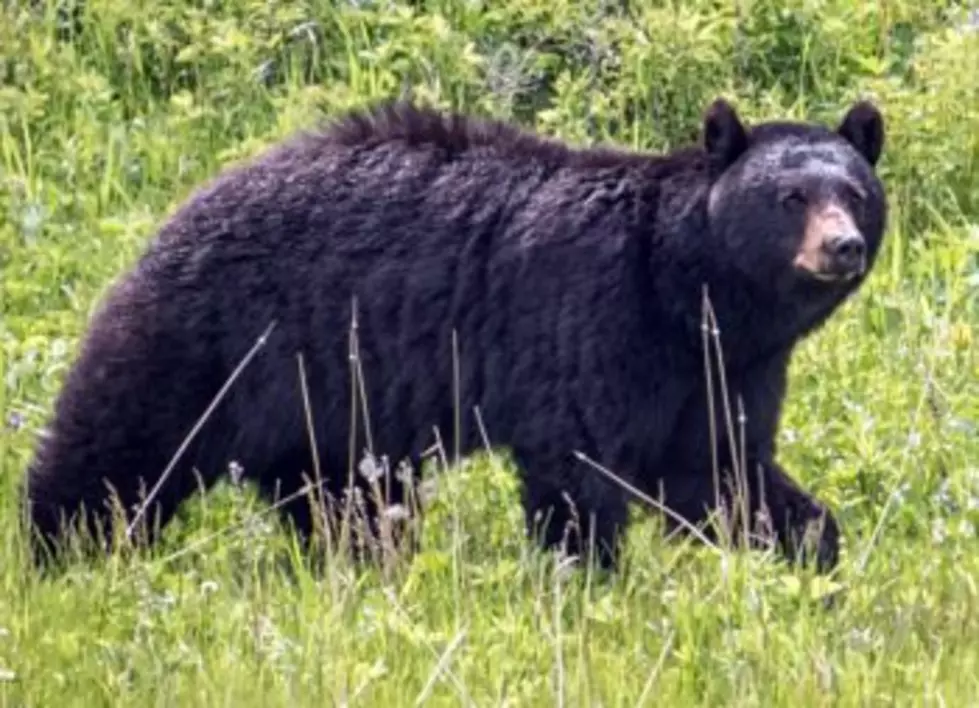
Federal judge advances lawsuit challenging black bear baiting in national forests
(CN) A federal judge refused last week to dismiss environmentalists' legal challenge of the practice of baiting black bears in Idaho and Wyoming national forests.
WildEarth Guardians, Western Watersheds Project and Wilderness Watch brought the lawsuit in June 2019, alleging that the use of bait while hunting black bears results in incidental killing of grizzly bears, which are protected under the Endangered Species Act.
These incidental deaths, it’s alleged, trigger the responsibility of the U.S. Forest Service to consult with the U.S. Fish and Wildlife Service and review the policy of black bear baiting.
Wyoming and Idaho are the only two states that allow black bear baiting on national forests.
In a cross-motion for summary judgment, the plaintiffs also argue that the government’s environmental analysis on black bear baiting from 1995 is outdated and needs to be supplemented with new information.
U.S. Magistrate Judge Candy Dale in Idaho ruled Thursday that the case can continue under the first count, using the Endangered Species Act rules, but she dismissed the second count.
In 1994, the Forest Service proposed a national policy to allow states to decide whether bait can be used in national forests, although the service acknowledged the proposal would likely affect grizzly bears, which remain listed as threatened with extinction under the Endangered Species Act.
The Forest Service adopted the proposed policy in 1994 with its “Finding of No Significant Impact,” which determined that no environmental impact statement was needed because the proposed policy was not a major federal action and it would “not significantly affect the quality of the human environment.”
Because the U.S. Fish and Wildlife Service found a remote possibility that a grizzly bear could be killed due to black bear baiting in national forests, the service issued an incidental take statement at the time that requires the service to have a continuing duty to regulate black bear baiting in national forests, with “no incidental take” of grizzly bears allowed.
If any single killing of a grizzly occurs, the Forest Service must initiate formal consultation with the Fish and Wildlife Service.
Several environmental groups sued three months later, claiming that the Forest Service violated the Endangered Species Act by failing to formally consult with Fish and Wildlife Service, and violated the National Environmental Policy Act by failing to first prepare an EIS — rather than an Environmental Assessment — on the issue.
In August 1996, the District Court granted summary judgment to the Forest Service and rejected both claims. The plaintiffs appealed the decision, but the D.C. Circuit affirmed in 1997.
In the current case, the federal defendants contend the first count fails to state a claim for relief against the Fish and Wildlife Service, because the agency does not have the authority to reinitiate consultation under the ESA.
The Forest Service asserted the second count must be dismissed as there is no major federal action remaining to occur, and it has no duty to supplement the environmental analysis under NEPA.
WildEarth Guardians alleges at least 10 grizzly bears have been killed due to black bear hunting using bait in national forests in Idaho and Wyoming, triggering the requirement to reinitiate consultation.
WildEarth alleges that these incidental takes require both agencies to reinitiate consultation, and new information reveals effects of the action not previously considered.
“States should not allow baiting that can attract grizzlies and lead to their deaths,” Pete Frost, attorney for the Western Environmental Law Center, said. “Grizzlies have been shot near bait, and more may die, unless the Forest Service properly acts.”
While the Forest Service did not dispute it was a proper defendant in the first count, the Fish and Wildlife Service argued it was not, and urged dismissal because it lacked the legal authority to initiate consultation. The FWS claimed the authority to initiate consultation lies solely with the action agency — the U.S. Forest Service, in this case.
Dale disagreed. “While the federal agencies’ arguments might be compelling if this was an issue of first impression, the Ninth Circuit has already addressed this precise issue multiple times and confirmed that both the action agency and the consulting agency have a duty to reinitiate consultation,” he wrote.
Dale ruled that, after an agency has prepared an environmental assessment and has issued a Finding of No Significant Impact, an agency must supplement its environmental analysis if there are “significant new circumstances or information relevant to environmental concerns and bearing on the proposed action or its impact.”
Dale ruled that there is no ongoing or proposed federal action that requires supplementation.
